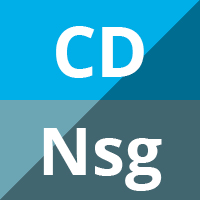
Colony stimulating factors (including erythropoietin, granulocyte colony stimulating factor and analogues) for stroke
Abstract Background Colony stimulating factors (CSFs), also called haematopoietic growth factors, regulate bone marrow production of circulating red and white cells, and platelets. Some CSFs also mobilise the release of bone marrow stem cells into the circulation. CSFs have been shown to be neuroprotective in experimental stroke. Objectives To assess (1) the safety and efficacy […]

Continuous versus intermittent physiological monitoring for acute stroke
Abstract Background Explanations for the effectiveness of stroke units compared with general wards in reducing mortality, institutionalisation and dependence of people with stroke remain undetermined, and the discussion on the most effective stroke unit model is still up for debate. The intensity of non-invasive mechanical monitoring in many western countries is one of the main […]

Thrombolysis (different doses, routes of administration and agents) for acute ischaemic stroke
Abstract Background Stroke is a leading cause of death and disability world wide. Thrombolysis with recombinant tissue plasminogen activator (rt-PA) is licensed for treatment of acute ischaemic stroke in the early hours after symptom onset. It has been shown in randomised controlled trials (RCTs) and the 2009 Cochrane review of thrombolysis for acute ischaemic stroke […]

Cholesterol-reducing agents for aneurysmal subarachnoid haemorrhage
Abstract Background Cerebral vasospasm and related delayed ischaemic deficits (DIDs) occur in about 17% to 40% of patients with aneurysmal subarachnoid haemorrhage (SAH) and lead to a poor outcome. Cholesterol-reducing agents might improve unfavourable outcomes. Objectives To assess the effects of cholesterol-reducing agents for improving outcomes in patients with aneurysmal SAH. Search methods We searched […]

Sonothrombolysis for acute ischaemic stroke
Abstract Background Sonothrombolysis is a promising but unproven tool for treating acute ischaemic stroke. There is an ongoing debate about the efficacy, safety, technical aspects of ultrasound administration and the possible potentiating effect of microbubbles. Objectives To assess the effectiveness and safety of sonothrombolysis in patients with acute ischaemic stroke. Search methods We searched the […]

Piracetam for acute ischaemic stroke
Abstract Background Piracetam has neuroprotective and antithrombotic effects that may help to reduce death and disability in people with acute stroke. This is an update of a Cochrane Review first published in 1999, and previously updated in 2006 and 2009. Objectives To assess the effects of piracetam in acute, presumed ischaemic stroke. Search methods We […]

Fibrinogen depleting agents for acute ischaemic stroke
Abstract Background Fibrinogen depleting agents reduce fibrinogen in blood plasma, reduce blood viscosity and hence increase blood flow. This may help remove the blood clot blocking the artery and re-establish blood flow to the affected area of the brain after an ischaemic stroke. The risk of haemorrhage may be less than with thrombolytic agents. This […]

External counterpulsation for acute ischaemic stroke
Abstract Background External counterpulsation (ECP) may improve cerebral blood flow, and it has been proposed as a potential therapy for patients with ischaemic stroke. Objectives To assess the efficacy and safety of ECP for acute ischaemic stroke. Search methods We searched the Cochrane Stroke Group Trials Register (June 2011), Cochrane Central Register of Controlled Trials […]

Surgical decompression for cerebral oedema in acute ischaemic stroke
Abstract Background Large cerebral infarction has a high case fatality. Despite the use of conventional medical treatments such as hyperventilation, mannitol, diuretics, corticosteroids and barbiturates, the outcome of this condition remains poor. Decompressive surgery to relieve intracranial pressure is performed in some cases, although evidence of any clinical benefits has not been available until recently. […]

Edaravone for acute ischaemic stroke
Abstract Background Neuroprotection is a promising therapeutic strategy for the treatment of acute ischaemic stroke. Edaravone is a neuroprotective agent that has been widely used in China, and several studies have suggested that it may be beneficial in acute ischaemic stroke. Objectives To assess the efficacy and safety of edaravone for acute ischaemic stroke. Search […]

